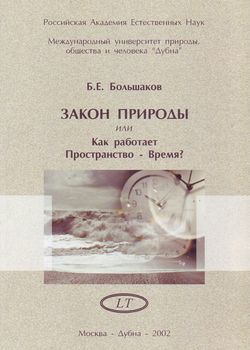Vladimir Ilyich Bodyakin, candidate of technical sciences, senior researcher at the RAS Institute of Control Sciences, Associate Professor of the Moscow Institute of Physics and Technology
Abstract
The article deals with the development of social and economic processes from the perspective of the general evolution of highly organized matter in the universe. It demonstrates the accelerated changing of the global evolution’s qualitative stages. The concept of evolutionary potential as the objective function of all living things is being introduced. The article also examines the complex of projects: Artificial Intelligence, Informograd and Noosphere — as a technological way of modern social and economic systems’ post-industrial development.
KEYWORDS: socio-economic processes, sustainable development, global evolution, technological way of post-industrial development.
Download article MEGA-PROJECT “NOOSPERE” ![]()

 ПОСЛЕДНИЕ ЭКЗЕМПЛЯРЫ ТИРАЖА
ПОСЛЕДНИЕ ЭКЗЕМПЛЯРЫ ТИРАЖА


